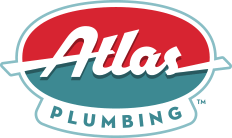Having a toilet in good working order isn’t just a convenience; it’s necessary for your home. When you start experiencing problems with yours, it’s crucial to find out what is causing the issue so you can repair it as quickly as possible. Having a clog that you can fix with a simple plunger is one thing, but when it keeps happening repeatedly, it’s time to get down to the bottom of it.
Why Does My Toilet Keep Clogging?
Constantly clogged toilets are typically due to the way you use your toilet, the model of toilet you have, or an issue with your home’s plumbing system. Luckily, identifying where the problem is coming from isn’t difficult. Below, we will talk about the most common reasons why a toilet keeps clogging.
#1: Toilet is a Low-Flow Model
One of the most common reasons why a toilet keeps clogging is due to it being an early model. While low-flow toilets were a great idea at first for conserving water at home, early models often lacked the pressure needed to flush material down the toilet. Low water pressure levels make it easier for materials to stay lodged in the toilet and sewer line, which will almost always lead to a clog.
Replacing these older toilet models with new fixtures is the easiest way to end the headache of constant toilet clogs. Over the past 20+ years, technological advancements have been made to increase the pressure in low-flow toilets. With a new model, you can still reap the benefits of conserving water at home without constantly worrying about your toilet clogging.
#2: Flushing Too Much Toilet Paper
If you have a newer model toilet and still experience repeated clogs, the problem can arise from excessive toilet paper use. Even if the material is made for the toilet, the more you use it, the more likely you will experience a clog. Many enjoy the comfort of using multi-ply tissue, but this material especially has trouble dissolving completely, which makes it more prone to clogging your toilet.
Reducing the amount of toilet paper you use with each flush can significantly limit the number of clogs you experience. Also, changing your tissue from multi-ply to 1-ply is better for your drains and may be the only fix you need. Try folding sheets of 1-ply toilet paper instead of using thicker multi-ply products. The less tissue you use, the better chances you have at limiting your number of toilet clogs.
#3: Flushing Items That are Non-Flushable
Toilets are only designed to dispose of two things: human waste and toilet paper. If anything else makes its way down your toilet, you risk clogging your drain. Many products out there market themselves as flushable and septic-safe, even when they are not. To avoid a clog, biodegradable toilet paper is the only product you should be flushing.
#4: Toilet Trap or Sewer Line Clog
Plumbing fixtures are designed with a trap that helps prevent items from getting too deep in the plumbing lines. If objects move into the sewer line, they can cause serious clogs. A clogged toilet that keeps repeating may be due to materials stuck within the toilet trap. Flushing items that are non-flushable and excessive toilet paper use can lead to this issue. This problem can also be caused by mineral deposit buildup over time.
If the sewer line in your home becomes clogged, your toilet will also keep clogging. When the drain’s exit is obstructed, the material cannot move through. If you have problems with drainage throughout your home, you likely have a sewer line clog. Your toilet will continue to clog until a plumber can clear the sewer line.
A clog in your toilet trap or sewer line is not something you can fix on your own. Call your local plumber as soon as possible to prevent these issues from causing damage to your plumbing system.
Plumbing Service in the Las Vegas Valley
If you have a toilet that keeps clogging and you can’t get to the bottom of it with the tips mentioned above, Atlas Plumbing is here to help! Get in touch with us today at (702) 819-7137 or schedule service with us here.


.1).2301041049550.jpg)